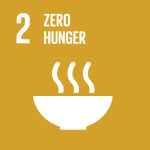
Photo:
Nepal is a mountainous, landlocked country in South Asia with a population of approximately 29.14 million. It is located between India and China and contains eight of the 10 highest peaks in the world, including Mount Everest – which is the highest point on earth above sea level – and the Kanchenjunga. Across the country, altitudes range from 70 meters above sea level to 8848 meters above sea level leading to considerable diversity in topography, climate and livelihoods.
- National
- Regional
- Global
- Country Office
- National Governments
- United Nations Development Programme (UNDP)
- Food and Agriculture Organization of the United Nations (FAO)
- BMUV/IKI
- Image

- Image

Nepal’s 2019 National Climate Change Policy provides the overarching policy guidelines on climate change for the country. Its aim is to create a climate resilient society by reducing the risks associated with climate change by mainstreaming climate change into all levels of government and within thematic policy areas, strategies, development plans and programmes. The Policy notably mentions that the implementation of all policies, strategies and plans related to climate change will be at the local level.
Nepal’s first Nationally Determined Contribution (NDC) was submitted in 2016 and its second NDC, submitted in December 2020, outlines emissions reductions targets for selected sectors such as energy, transport, agriculture, forestry and waste.
The NDC’s mitigation strategy foresees maintaining 45 percent of the total area of the country under forest cover. For adaptation, it articulates Nepal’s intention to submit an adaptation communication through the development and submission of its NAP to the UNFCCC in 2021. The NAP includes 9 priority measures in agriculture and is aligned with thematic and cross-cutting adaptation priorities identified in the National Climate Change Policy.
In Nepal, SCALA focuses on promoting sustainable agriculture and climate resilience through community seed banks and climate-smart farms in rice, livestock, and horticulture value chains, aligned with national priorities in the NDC and NAP. The programme prioritizes commercial livestock and paddy farms as key systems for intervention.
SCALA completed a systems-level assessment of climate-smart commercial rice and livestock farms to identify key climate risks and resilience-building measures at the farm, value chain, and policy levels. The assessment recommended scaling up practices like alternate wetting and drying for rice, silvopastoral systems for livestock, and integrated pest management; strengthening policies; developing financial incentives; advancing research; expanding infrastructure; and promoting public-private partnerships.
These findings informed the creation of climate-smart farming guidelines—now published by the Ministry of Agriculture and Livestock Development—which align with Nepal’s NDC Implementation Plan and will guide efforts to reduce emissions and build agricultural resilience.
The project in Nepal also focused on addressing the capacity gaps of provincial-level Agriculture Knowledge Centres (AKCs) and Veterinary Hospital and Livestock Service Expert Centres (VHLECs), which are crucial for agricultural extension in the country’s federal structure. An assessment identified both strengths and weaknesses of these institutions, analyzing their capabilities, infrastructure, and training needs. Based on this, a capacity-building package was developed to enhance the climate change expertise of AKCs and VHLECs, aiming to improve their ability to advise smallholder farmers on climate-smart agricultural (CSA) practices in alignment with Nepal’s NAP and NDC targets.
Trainings were held in the Koshi and Karnali provinces, building the capacity of 58 officers from AKCs and VHLECs. The training included theoretical lessons, practical field visits, and interactive tools. Key outcomes included the importance of multi-stakeholder collaboration, the adoption of climate-smart technologies, and the alignment of local initiatives with national policies, such as Nepal's NDCs and the Climate Change Policy 2019.
Moving ahead, SCALA in Nepal aims to:
- Support the integration of climate change considerations into Nepal’s Agricultural Development Strategy, with a focus on gender, social inclusion, and natural resource management, expected to be finalized in 2025.
- Collaborate with MoFE and WWF-CBIT to develop a roadmap for transitioning to improved AFOLU GHG inventory methodologies, with a joint training workshop on GHG data collection and tools for 20 stakeholders in September 2024. In 2025, contribute to the NDC3.0 and BTR process, participate in working groups and consultations, and support the update of agriculture sector targets in collaboration with CBIT.
- Finalize a business plan for the apple value chain, including market assessments, economic analyses, and recommendations for de-risking strategies and insurance mechanisms to strengthen resilience and expand market access.





